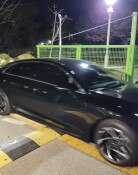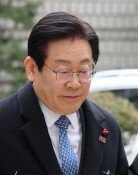Moms Are Changing Korean Elections
Shim Jin-sook, a 32-year-old housewife living in the city of Incheon, has been busy since the beginning of May. She attends a meeting of parents held at a library in her community almost every morning. They met on Fridays to read books and newspapers and exchange ideas, but get together more often now.
The purpose of this meeting is to review candidates for the May 31 local election. The group of more than 10 members analyzes career and promises of candidates and exchanges information about them.
Shim is also requesting candidates to make a promise to establish a community library, create a clean environment to prevent children from suffering from atopic dermatitis, and changing a school meal system into one managed by parents.
She said, We will launch a campaign to support the candidate who best reflects our opinions. The kitty mom generation, married women in their mid 20s to mid 30s like Shim, is showing a keen interest in the upcoming local election. They not only ask candidates to listen to them, but also show higher voting rate than males in the same age group as opposed to other generations.
The National Election Commission (NEC) analyzed voting rates of local elections and found that voting rates of the kitty mom generation were remarkably higher that those of males in the same age group.
In the second local election held in 1998, the voting rate of males (54.3%) was 2.2% points higher than females 52.1%. But for those aged 25-29, the voting rate of females (31.4%) was 1.8 percentage points higher than males. For those aged 30-34, the figure for females (43.5%) was 6.1% points higher than males.
In the third local election held in 2002, this gap between genders widened to 3.4% points in the group aged 25-29, and 7% points in the group aged 30-34. Considering that some in their late 20s turned the early 30s for the intervening four years, the real gaps are wider than the figures.
In the previous presidential elections and general elections, females in the kitty mom generation displayed higher voting rates than males in the same age group, too. But the gaps were wider in local elections. Moreover, more and more kitty moms not only exert their rights as voters but also run for election. As of May 1, kitty moms accounted for 23.5% of females registered on election commissions as candidates for city or province councilor. They also accounted for 32% of female city or county councilor candidates. Males in the same age groups only took up 10.4% and 7.9% respectively.
Political parties and candidates are coming up with promises appealing to them as kitty moms emerge as serious voters. Candidates rush to make promises regarding child care like the expansion of daycare centers and the creation of a clean environment for the prevention of atopic dermatitis, education issues like the creation of English camps and the expansion of after-school curriculums, and school meals.
ditto@donga.com







